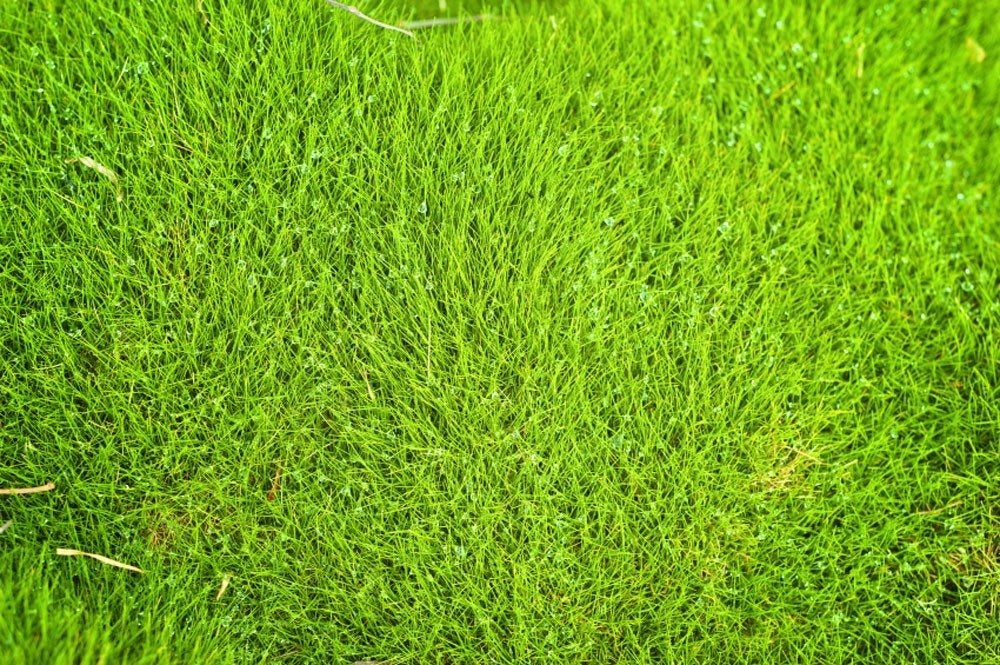No Fuss Lawns With Zoysia Grass


Are you looking for a hardy, drought-resistant lawn that requires little or no maintenance? Then perhaps you would like to try growing Zoysia grass rather than traditional lawn grass. This thick, hardy grass not only chokes out weeds, but it requires less mowing, watering, and fertilizing once it has been established in the lawn.
What is Zoysia Grass?
Zoysia is a rhizomatous, warm-season grass that holds up well to a myriad of conditions, including foot traffic. In fact, with its tough stems and leaves, zoysia grass has the uncanny ability to heal itself quite effectively when trod upon. Although zoysia generally thrives in full sun, it can tolerate shade. Zoysia grass has the ability to remain alive in conditions that most other grasses would perish in. Their root system is amongst the deepest for grasses and adapts easily to numerous soil types, from sand to clay. However, there is a downside. Zoysia grass is very susceptible to cold conditions and is, therefore, best suited to warm climates. In cooler areas, zoysia grass will turn brown and unless, or until warm conditions return, this grass will lay dormant.
Planting Zoysia Grass
Spring is the best time for planting zoysia grass, and there are various planting methods that can be employed. Some people choose to start by seed; however, most prefer to lay down sod or insert plugs, all of which can be acquired at most nurseries or garden centers. Any of these methods is fine and up to the individual. Laying sod results in a more immediate lawn and usually requires several weeks before it is able to withstand any foot traffic. The newly sod area should be kept moist until the grass is well established. Sloped areas may need to be secured with stakes to prevent the sod from shifting out of place before the roots have had adequate time to take hold. An alternative to laying sod is the method of laying strips. Strips are similar to sod but are smaller and less expensive. The use of plugs or sprigs is more commonly used when planting zoysia grass. Plugs contain a piece of rhizome affixed with soil. These should be kept moist and placed in holes that are around 2 to 3 inches (5-8 cm.) deep and spaced approximately 6 to 12 inches (15-31 cm.) apart. Lightly tamp the area once the plugs have been inserted and continue to keep them moist. Generally, it takes about two full growing seasons for the area to gain full coverage. Zoysia sprigs are similar to plugs; they include a small portion of rhizome, root, and leaves but have no soil, as do plugs. Sprigs are not as expensive and require less care than plugs, both before and after planting. Sprigs are planted much like plugs; however, they are normally fashioned in a shallow furrow rather than holes and spaced about 6 inches (15 cm.) apart. Sprigs should not dry out; therefore, applying a layer of straw mulch is helpful and highly recommended to retain moisture.
Care of Zoysia Grass
Once zoysia grass has established itself, it requires little maintenance. Seasonal fertilizing is usually sufficient. Continual mowing is not a concern with this type of grass; however, when mowing zoysia grass, cut it at a shorter height, around 1 to 2 inches (2.5-5 cm.). Although there are few insect or disease problems associated with zoysia grass, it does occur. The most common problem encountered with zoysia is thatch, which consists of layers of decomposed roots. This brown, spongy material can be found just above the soil surface and should be removed with a power rake in early summer.
Sign up for the Gardening Know How newsletter today and receive a free copy of our e-book "How to Grow Delicious Tomatoes".

Nikki Tilley has been gardening for nearly three decades. The former Senior Editor and Archivist of Gardening Know How, Nikki has also authored six gardening books.